Top Salesforce Interview Questions And Answers
4.9 out of 5 based on 17963 votesLast updated on 15th Jul 2023 25.2K Views
- Bookmark

These Salesforce Interview Questions comprise questions that have been quite well-researched and compiled by industry experts in the field of Salesforce.
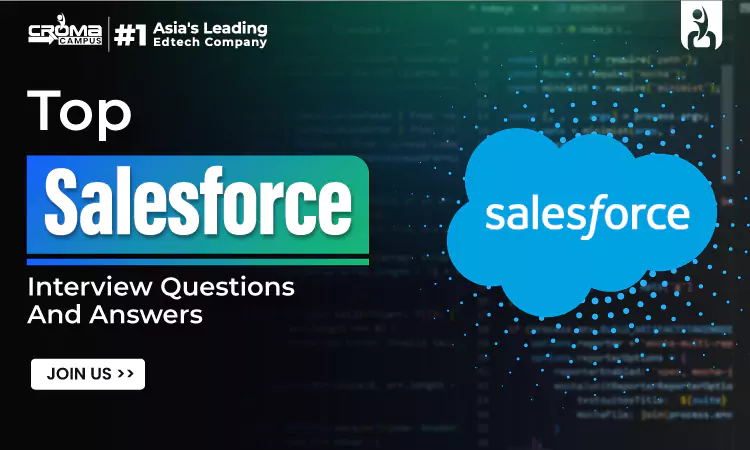
Salesforce is one of the leading CRM platforms globally. It helps businesses effectively manage their customer relationships, track sales activities, streamline marketing efforts, and improve customer service. By centralizing customer data and providing tools for sales automation lead management, and customer support, Salesforce enables organizations to enhance their overall customer experience.
Salesforce Interview Questions and Answers
These Salesforce Interview Questions comprise questions that have been quite well-researched and compiled by industry experts in the field of Salesforce. In the present scenario, you will find numerous sets of Salesforce Interview Questions and Answers being asked of a candidate and to excel in it, you need to be well informed, and here you can have a look at the most frequently asked Salesforce Technical Interview Questions
What refers to Salesforce?
It is one of the most basic and important Salesforce Technical Interview Questions. Basically, Salesforce is a legit cloud-based customer relationship management (CRM) platform that helps organizations manage their sales, marketing, and customer service activities.
What are the different types of Salesforce clouds?
Well, as a known fact, Salesforce is a vast course, and in Salesforce Interview Questions: You will hear this question being asked more often. So, Salesforce provides numerous clouds, including the Sales Cloud, Service Cloud, Marketing Cloud, Commerce Cloud, Community Cloud, and App Cloud
What is an “object” in Salesforce?
In Salesforce Interview Questions and Answers, you will also come across people asking about “objects”. Well, this object differs, and it refers to a table or database in the CRM system. It stores data specific to a particular entity, such as an account, contact, opportunity, or custom object.
What is a ‘profile’ in Salesforce?
A ‘profile’ in Salesforce defines a user's permissions, access settings, and settings for record types and page layouts. In Salesforce Technical Interview Questions: whenever you are asked about “profile”, do not mention or express that it controls what a user can view, edit, create, or delete in the Salesforce organization.
What refers to the “workflow rule” in Salesforce?
A “workflow rule” in Salesforce is an automated process that standardizes and streamlines business processes. It assists in automating standard internal procedures to save time across the organization. Well, in Salesforce Technical Interview Questions: they might also ask you to properly explain it with instances, so you need to prepare yourself well enough to answer them confidently.
In the general Salesforce Interview Questions and Answers round, you might also be asked, “What is the difference between a role and a profile in Salesforce?”
To answer that confidently, you can explain that: “A role defines a user's position in the organization's hierarchy and determines access to records owned by other users. On the other hand, a profile defines a user's permissions and settings within the organization.”
What is a validation rule in Salesforce?
You might not have heard about the “validation rule”, but in the Salesforce Interview Questions and Answers segment, you might get asked about it. So, - A validation rule in Salesforce ensures that data entered into records meets specific criteria. It helps maintain data integrity and enforces business rules and standards.
What is the difference between a standard object and a custom object in Salesforce?
A standard object is provided by Salesforce and includes common business entities such as accounts, contacts, opportunities, and cases. A custom object, on the other hand, is created by an organization to store information unique to its business processes.
Also, Read This Post:
Salesforce Admin Certification Cost
Best Salesforce Developer Certifications
Salesforce Admin Resume with No Experience
What is Apex in Salesforce?
Apex is a programming language used to develop custom business logic and extensions for Salesforce. It is similar to Java and allows developers to write custom code to enhance the functionality of the Salesforce platform.
What is the purpose of the @AuraEnabled annotation in Salesforce?
The @AuraEnabled annotation ensures client- and server-side communication in Lightning components. It allows the Lightning components to invoke server-side methods and send and receive data between the client and the server.
What are ‘Governor Limits’ in Salesforce?
Governor limits are runtime limits enforced by the Salesforce platform to prevent abuse and ensure resource allocation. They include limits on the number of records retrieved, the number of SOQL queries, CPU time, heap size, etc.
How can you perform bulk data operations in Salesforce?
Salesforce provides the Bulk API, which allows you to process large sets of data asynchronously. It provides a way to create, update, delete, or upsets records in bulk. Well, to be honest, in a Salesforce Interview Questions and Answers, they will hardly ask you this question, as it requires proper explanation, but it will be appreciated if you prepare yourself to define it well.
What is a ‘junction object’ in Salesforce?
When asked about Salesforce Technical Interview Questions- you must First, highlight how it acts as a bridge. A ‘junction object’ is a custom object that serves as a bridge between two related objects in a many-to-many relationship. It contains two master-detail relationships, connecting records from both objects.
How do sharing and security work in Salesforce?
Sharing and security in Salesforce are based on the organization-wide default settings, profiles, roles, sharing rules, permission sets, and manual sharing. These settings control the visibility and access to records and data.
In a general Salesforce Technical Interview Questions segment, you might be asked, “What is the difference between a trigger and a workflow rule?”
To answer it in a proper way, you must start with a proper definition of Trigger. A trigger is an Apex code that executes before or after specific events occur, while a workflow rule is a declarative tool that allows for automation based on specific criteria without writing code.
What is the main purpose of the Schema Builder in Salesforce?
The Schema Builder is a graphical representation of the data model in Salesforce. It allows administrators and developers to visualize and design the relationships between objects and fields. Well, Schema Builder holds an important place in the CRM domain and in Salesforce Technical Interview Questions, you might get asked about it. And knowing its answer will genuinely help you get into a well-set-up company.
How can you integrate Salesforce with external systems?
Well, Salesforce provides various integration options, such as REST and SOAP APIs, Salesforce Connect, Apex callouts, and middleware tools like MuleSoft and Informatica
What are the different types of sandboxes in Salesforce?
You will find Salesforce offering several types of sandboxes, comprising Developer Sandbox, Developer Pro Sandbox, Partial Copy Sandbox, Full Sandbox, and Scratch Orgs. Each type has different features and limitations.
Well, this specific question has been asked in the Salesforce Technical Interview Questions have been asked several times in recent times, and knowing its types in detail will eventually help you leave an impressive image in front of the interviewer. So, do not dodge this question and answer it in a detailed way.
How do you control access to data in Salesforce?
Salesforce provides a robust security model that allows you to control access to data at various levels. You can use profiles, roles, sharing rules, and permission sets to define who can view, create, edit, or delete records. In the Salesforce Interview Questions and Answers round, this is one of the complex questions that candidates often pass. But passing this question won’t help you, so you must start with its gist and then further move on to explain it with instances.
How do you import and export data in Salesforce?
Salesforce provides numerous data import and export tools, such as the Data Import Wizard, Data Loader, and Salesforce Connect. These tools enable you to import data from external sources, export data to CSV files, and integrate with other systems.
How does Salesforce track sales?
There are unique procedures followed by each organization for tracking their sales. Numerous organizations track the performance of sales via data analysis. The tracking system of Salesforce lets organizations accumulate basic details for evaluating performance, like:
- Consumers who are served daily
- Number of daily sales
- Regular reports of sales from Sales Managers
- Sales figures on a weekly, monthly, or quarterly basis, depending on the organizations’ requirements
- Details of the repeat customers who serve as the key factor for the growth of any organization
To be honest, in a Salesforce Interview Questions and Answers round, this is one of the most important questions that comes around. And knowing its answer is a must to get started with Salesforce professionally.
What refers to a junction object?
Junction objects help associate two objects. They are custom objects in Salesforce that allow building a master-detail relationship that is established between two different data objects. It uses a many-to-many relationship to link many junction objects to several records.
Salesforce is a cloud-based CRM platform that provides a suite of tools for managing customer relationships, sales, marketing, and more.
What are the different types of Salesforce editions?
Salesforce offers various editions such as Essentials, Professional, Enterprise, Unlimited, and more, each with different features and functionalities.
What is a Salesforce Sandbox?
A Sandbox is a copy of a Salesforce org used for development, testing, and training without affecting the production environment.
Explain the difference between a workflow rule and a process builder
Workflow rules automate simple business processes, while Process Builder allows for more complex, multi-step processes with more advanced functionalities.
What is the role of Apex in Salesforce?
Apex is a programming language used to develop custom functionalities in Salesforce, such as triggers, controllers, and web services.
What are governor limits in Salesforce?
Governor limits are runtime limits enforced by the Salesforce platform to ensure efficient use of shared resources, preventing any single transaction from monopolizing resources.
How is data security maintained in Salesforce?
Salesforce uses a robust security model that includes profiles, roles, sharing rules, and field-level security to control access to data.
What is a junction object in Salesforce?
A junction object is a custom object with two master-detail relationships, allowing many-to-many relationships between objects.
Explain the difference between a role and a profile in Salesforce
Roles determine data access, while profiles control permissions and settings within an organization.
How do you handle exceptions in Apex?
Apex provides try-catch blocks to handle exceptions. Exceptions can be caught and appropriate actions can be taken in catch blocks.
What are the different types of reports available in Salesforce?
Salesforce offers tabular reports, summary reports, matrix reports, and joined reports.
How does Salesforce ensure data integrity?
Salesforce uses features like validation rules, data types, and required fields to maintain data integrity.
What is the difference between a custom object and a standard object in Salesforce?
Standard objects are provided by Salesforce, like Accounts and Contacts, while custom objects are created by users to store specific types of data.
Explain the difference between a workflow rule and a trigger
Workflow rules are automated processes that you can set up to trigger an action based on evaluation criteria, while triggers are pieces of code that execute before or after specific events occur in Salesforce.
How do you deploy changes from Sandbox to Production?
Changes can be deployed using Change Sets, Salesforce CLI, or Metadata API. Change Sets allow you to package and deploy customizations between environments.
Preparing for a Salesforce interview involves understanding the platform's various modules, customization options, and development capabilities. These questions cover a range of topics commonly asked during interviews, allowing candidates to showcase their knowledge and expertise in Salesforce.
Explain the Numerous Salesforce Dashboard Components
Salesforce offers a variety of dashboard components that you can use to visualize and analyze your data. These components help you create dynamic and interactive dashboards tailored to your specific business needs.
Here are some of the most commonly used Salesforce dashboard components:
- Chart: The chart component allows you to display data in various chart formats, such as bar charts, pie charts, line charts, and more. You can choose different field values for the X and Y axes and customize the chart properties like colours, labels, and legends.
- Table: The table component presents data in a tabular format, allowing you to view detailed information. You can specify the fields to display and sort the data based on specific criteria. It is useful for displaying lists of records and their corresponding values.
- Gauge: The gauge component visually represents a single value within a specified range. It is commonly used to display key performance indicators (KPIs) or progress towards a goal. You can set thresholds and define the ranges for different performance levels.
- Metric: The metric component displays a single value or summary statistic, such as a sum, average, or maximum. It is useful for presenting summarized data at a glance. You can customize the display format, such as currency, percentage, or number.
- Report Chart: The report chart component allows you to embed a chart from an existing Salesforce report directly into your dashboard. It provides a dynamic link to the underlying report, enabling users to drill down into more detailed data.
- Visualforce Page: The Visualforce page component lets you integrate custom Visualforce pages into your dashboard. It allows you to leverage your own HTML, CSS, and Apex code to create highly customized and interactive dashboards.
- Custom Component: Salesforce also provides the flexibility to create custom dashboard components using Lightning Web Components (LWC) or Aura components. This allows you to build and integrate your own tailored visualizations and functionality.
These are just a few examples of the Salesforce dashboard components available. Depending on your edition of Salesforce and any additional installed packages, you may have access to more specialized components, such as maps, calendars, or other custom components designed for specific use cases.
List the Numerous Types of Reports Available in Salesforce
In Salesforce, there are several types of reports available to help you analyze and visualize your data.
Here are some of the common types of Salesforce Technical Interview Questions asked and this point will justify it well:
- Tabular Reports: Tabular reports present data in a simple table format with rows and columns. They are useful for displaying raw data without any summarization.
- Summary Reports: Summary reports allow you to group and summarize data. You can group data by a particular field and add summary calculations, such as totals, averages, or maximum/minimum values.
- Matrix Reports: Matrix reports provide a cross-tabular view of data, allowing you to group data by both rows and columns. This type of report is useful for comparing data across different categories.
- Joined Reports: Joined reports combine multiple report blocks into a single report. Each report block acts as a separate report with its own set of fields, columns, and calculations. You can view data from different report types side by side.
- Chart Reports: Chart reports present data in graphical form, making it easier to visualize trends and patterns. Salesforce provides various chart types, including bar charts, line charts, pie charts, and more.
- Dashboard Reports: Dashboards allow you to combine multiple reports and charts onto a single page, providing an overview of key metrics and performance indicators. Dashboards can be customized to display real-time data and can be shared with others.
- Lightning Report Builder: Salesforce Lightning Report Builder is a drag-and-drop interface that allows you to create reports and dashboards with ease. It provides a user-friendly interface for building reports without the need for extensive coding or technical knowledge.
These are some of the primary types of reports available in Salesforce. Each type offers unique features and functionalities to help you analyze and present your data effectively.
Highlighting perks of acquiring Salesforce Training to pass the Salesforce Interview Questions confidently
Acquiring legit Salesforce Training can provide several perks and help you pass Salesforce Interview Questions with confidence. Here are some of the key benefits:
- In-depth knowledge of Salesforce: Salesforce training will give you a solid understanding of the platform's core concepts, features, and functionalities. This knowledge will enable you to answer Salesforce Interview Questions accurately and showcase your expertise.
- Hands-on experience: Many Salesforce Training programs offer hands-on exercises and projects that allow you to apply what you've learned. By gaining practical experience, you'll be better equipped to answer Salesforce Interview Questions that require real-world examples or scenarios.
- Mastery of Salesforce tools: Salesforce has a vast ecosystem of tools and applications. Through training, you can become familiar with tools like Salesforce Lightning, Apex, Visualforce, and Process Builder. Proficiency in these tools will demonstrate your ability to leverage the full potential of the Salesforce platform.
- Understanding of Salesforce architecture: Salesforce has a unique architecture that includes objects, fields, relationships, and data modelling. Training will help you grasp these architectural components, enabling you to answer interview questions related to data modelling, object relationships, and customizations effectively.
- Knowledge of declarative development: Salesforce provides declarative tools like Workflow Rules, Process Builder, and Flow that allow you to build applications without coding. Acquiring training will give you a thorough understanding of these declarative development tools, equipping you to answer interview questions about automating business processes within Salesforce.
- Preparation for certifications: Salesforce offers a range of certifications that validate your expertise in specific areas such as administration, development, and marketing. Training programs often align their curriculum with these certifications, providing you with the knowledge and skills necessary to pass the exams. Possessing a Salesforce Certification Course can significantly enhance your job prospects and boost your confidence during interviews.
- Networking opportunities: Many Salesforce training programs provide opportunities to connect with a community of learners, trainers, and industry experts. Engaging with this network can help you expand your professional connections, gain insights from experienced practitioners, and even discover job opportunities within the Salesforce ecosystem.
By acquiring Salesforce training, you'll gain the knowledge, skills, and confidence needed to excel in Salesforce Interview Questions. Whether it's answering technical questions, demonstrating your understanding of the platform, or showcasing your hands-on experience, training will give you a competitive edge and increase your chances of securing a Salesforce role.
Also, For more information visit here: Microsoft Azure Course Online
Benefits Of Salesforce Course
Salesforce offers a multitude of benefits that empower businesses to enhance customer relationships, streamline operations, and drive growth.
Some crucial advantages include the following.
- Unified Platform: It provides a unified view of customer data, enabling personalized and targeted interactions across various touchpoints.
- Scalability: Salesforce scales easily, accommodating the needs of small businesses to large enterprises without compromising performance.
- Customization: Its highly customizable nature allows businesses to tailor the platform to their specific workflows and requirements.
- Automation: Salesforce automates repetitive tasks, freeing up valuable time for teams to focus on strategic initiatives and customer engagement.
- Analytics and Insights: It offers robust analytics tools that provide actionable insights into customer behavior, sales performance, and marketing effectiveness.
- Mobility: The platform is accessible from anywhere, on any device, enabling teams to stay productive on the go.
- Improved Collaboration: Salesforce's collaboration features to facilitate better teamwork and communication across departments, enhancing overall productivity.
- Enhanced Customer Service: Through Service Cloud, businesses can deliver exceptional customer service by resolving issues faster and more effectively.
- Security and Compliance: Salesforce maintains stringent security measures and compliance standards, ensuring data protection and privacy.
- Innovation: With regular updates and the integration of new technologies like AI (Einstein), Salesforce stays at the forefront of innovation, offering cutting-edge solutions to its users.
Conclusion
Salesforce stands as a transformative force in modern business, redefining how companies engage with customers, manage operations, and drive success. Its comprehensive suite of tools, from Sales and Service Cloud to Marketing and Analytics, empowers organizations of all sizes to adapt, grow, and thrive in a rapidly changing landscape. With its emphasis on customization, scalability, and innovation, Salesforce not only streamlines processes but also fosters deeper customer connections. As businesses navigate the digital age, Salesforce remains a crucial ally, enabling them to stay agile, data-driven, and customer-centric, ultimately propelling them toward sustained growth and success.
Subscribe For Free Demo
Free Demo for Corporate & Online Trainings.
Your email address will not be published. Required fields are marked *

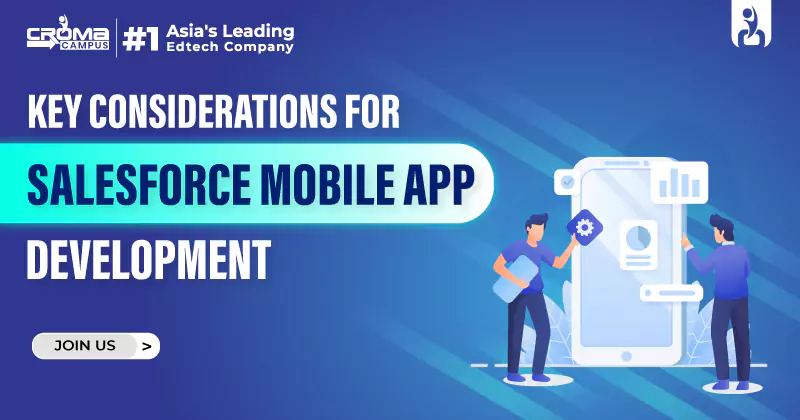
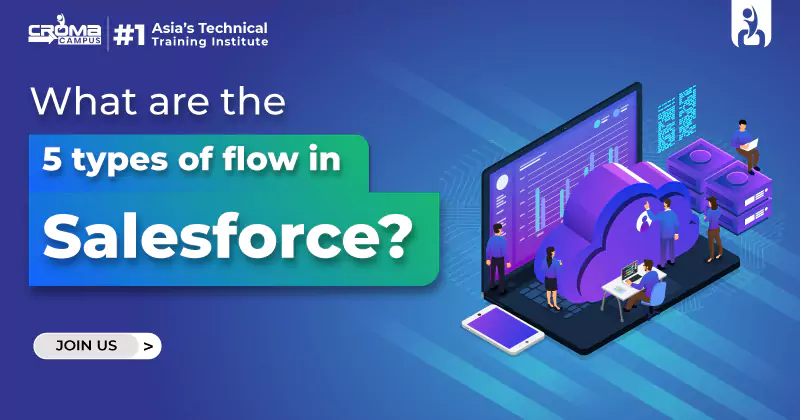
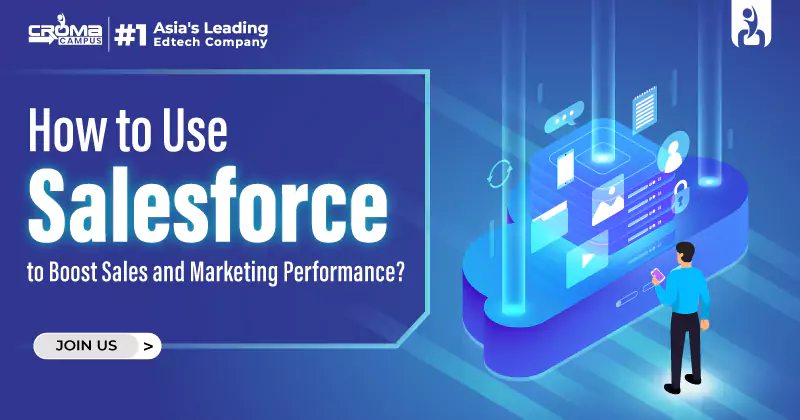
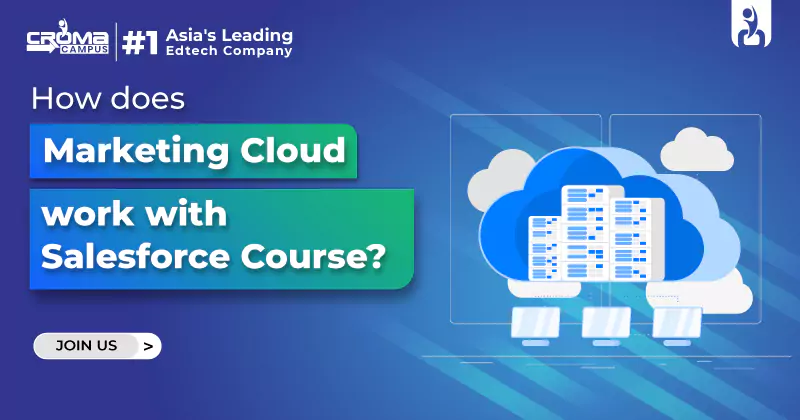
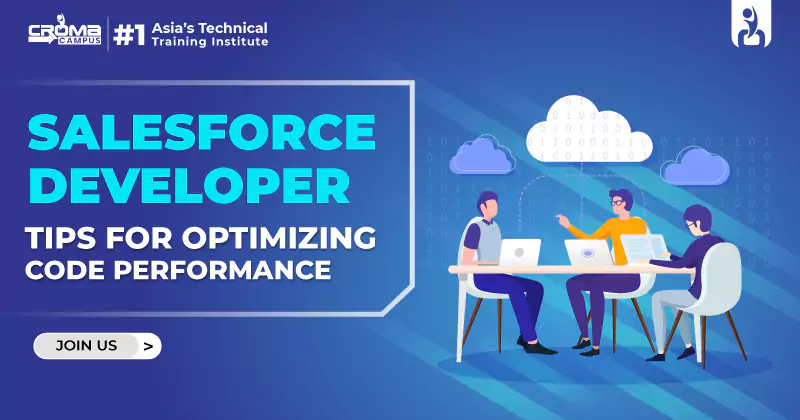
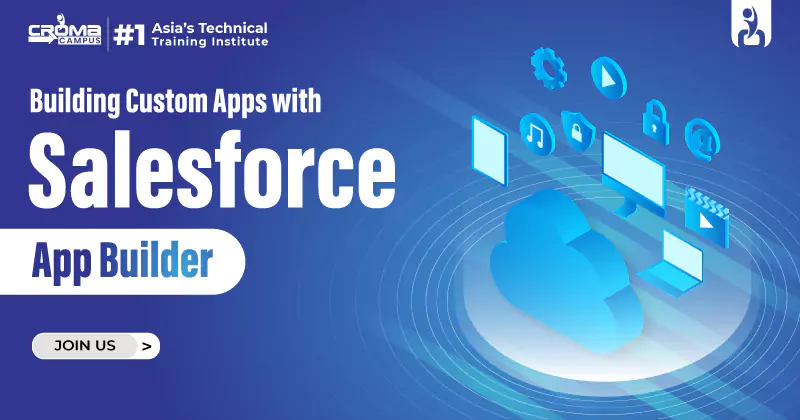
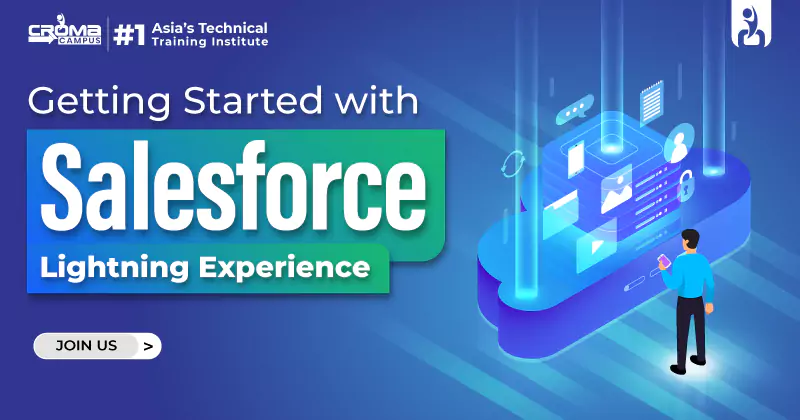
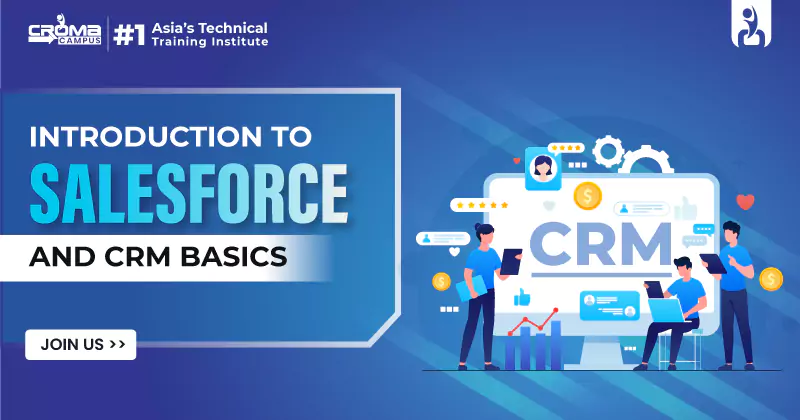

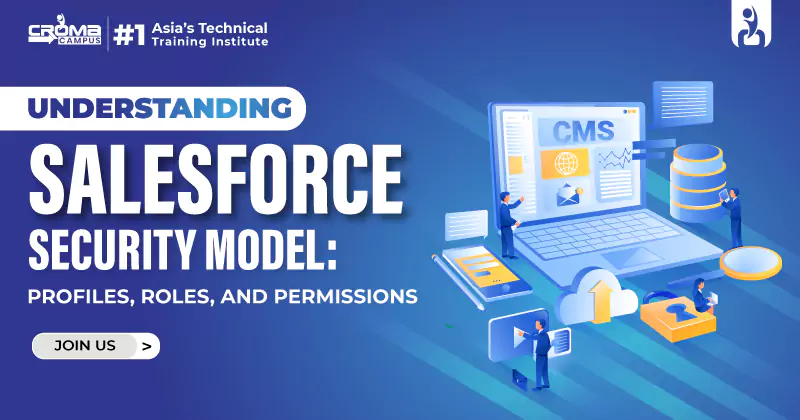











 Master in Cloud Computing Training
Master in Cloud Computing Training